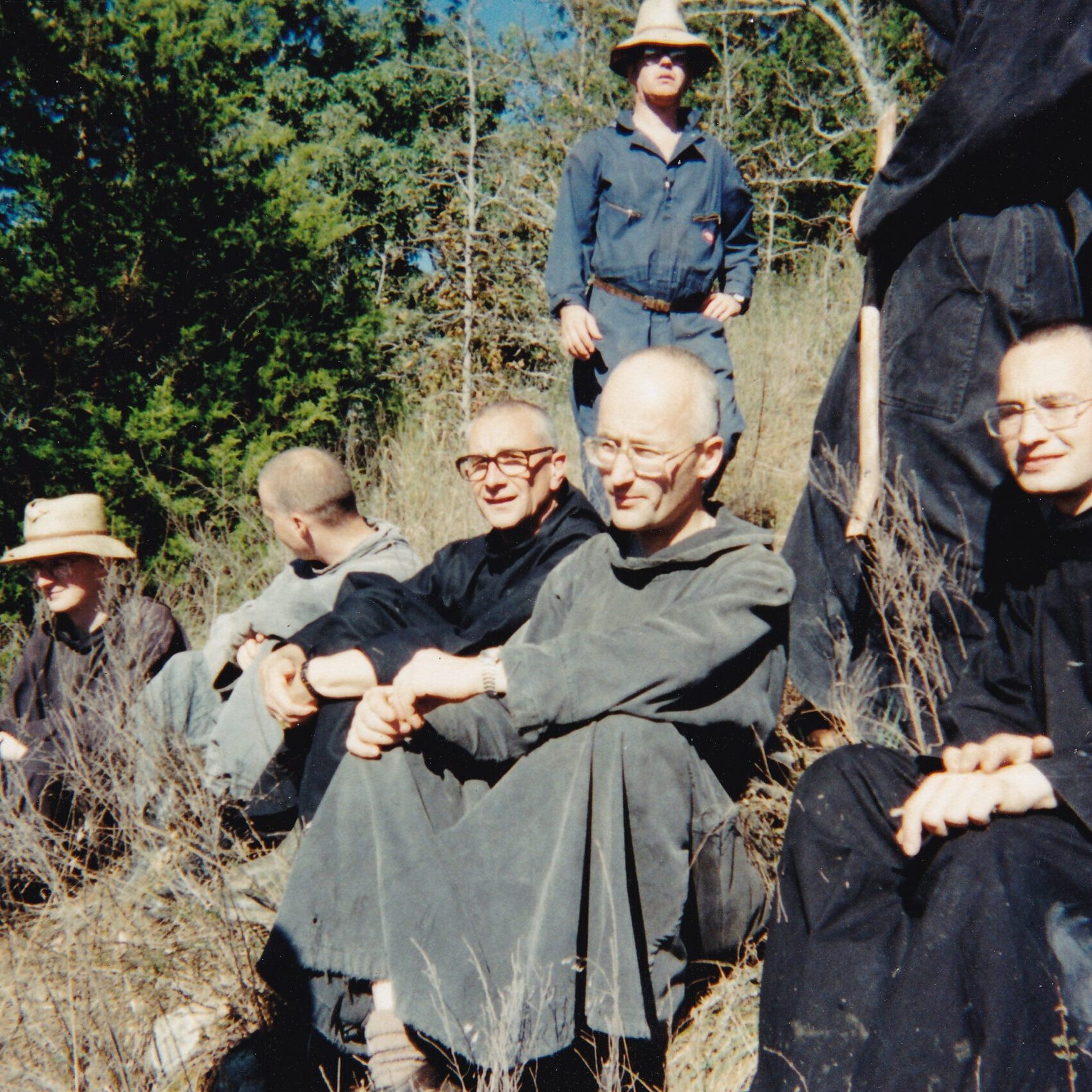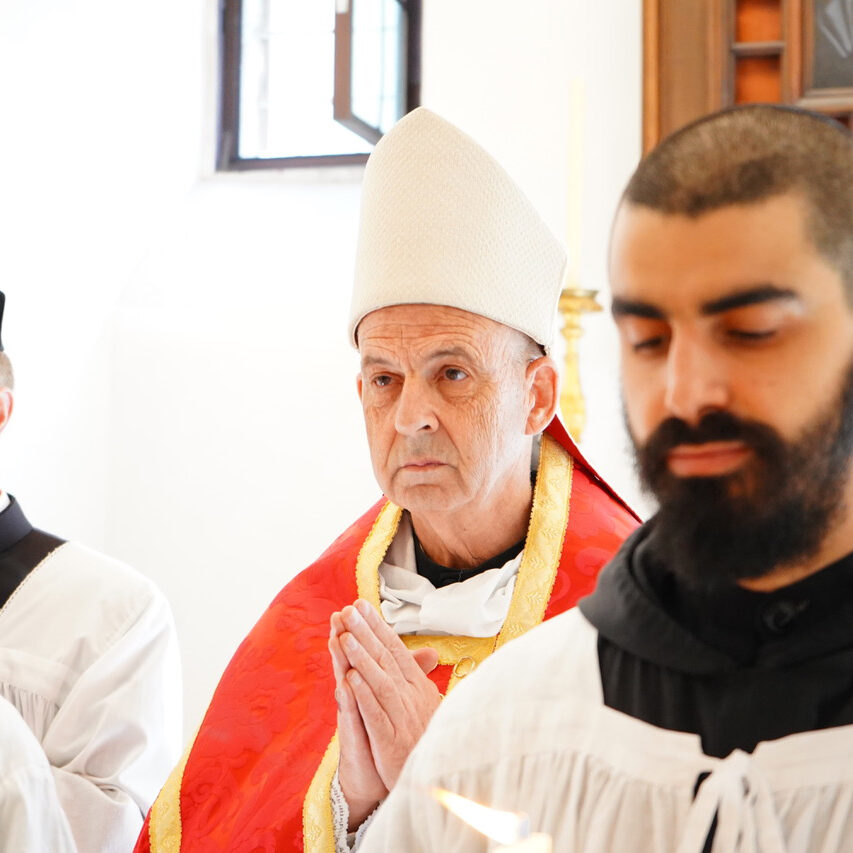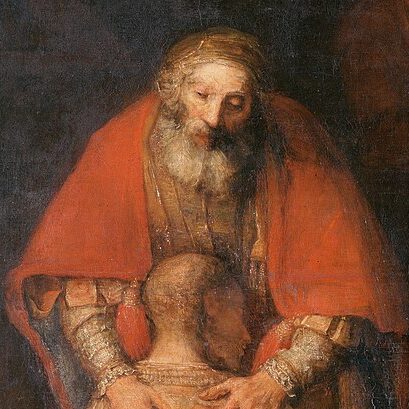Dear Friend of Clear Creek Abbey,
Around our Abbey has grown up a community of Catholic families. This is still a very humble populace, not quite worthy of the designation “town”—or even of “village” (it might take a century to reach that stage)—although it does share some of the characteristics of the latter.
Sweet Auburn! loveliest village of the plain,
Where health and plenty cheer’d the labouring swain,
Where smiling spring its earliest visit paid,
And parting summer’s lingering blooms delay’d. (Oliver Goldsmith, “Deserted Village”)
In this nascent village, certain persons have begun to fill the various roles that assure the complementary nature of such a human assemblage. One man has a saw-mill; another raises cows and goats. One lady sells her hens’ eggs to neighbors; several women interest themselves in the healing properties of herbs. But there is one “villager” who has made a bit of a name for himself. He is a writer.
You might think this has nothing to do with a Catholic village. Self-proclaimed “novelists” and “writers” are a dime a dozen in our media-saturated world. In fact, thanks to the Internet and more recently to the so-called social media, it seems that there are very few folks who are not writers, that is “bloggers” and such. But this village writer of ours is nothing like that—or, in any case, he is noteworthy in a far different way. He is a writer who teaches children to write stories with a pen and paper.
Before you stop reading—just think for a moment. This writer actually succeeds in getting children of our time to write a story. How many children do you know who can write a decent story? Much, in fact, is involved here. You see, in order to write a story a boy or girl must not only learn to spell a few words and understand some basics of grammar, but he or she must learn to think in both logical and imaginative ways. Furthermore, the young writer grappling with pen and paper must learn to sit up and concentrate or face the consequences of sloppy penmanship. If the story works and the fledgling author is happy about it, there may even be improvement in speech—who knows? Perhaps even the way the writer dresses and acts will change for the better.
Some of these young writers in our neighborhood have already grown up and married, setting up small but beautiful cottages laboriously and lovingly constructed, where a new life-story may be written. The consequences of a child’s having written a good story are far-reaching.
Thus, our Village Writer is something of a phenomenon. Although he teaches in a setting that is not a fully organized school, it is hard not to recall the lines of Oliver Goldsmith’s “Deserted Village”:
The village master taught his little school; A man severe he was and stern to view;…
Yet he was kind; or if severe in aught,
The love he bore to learning was in fault
The village all declar’d how much he knew,
‘Twas certain he could write, and cipher too…
It is my hope that our Abbey, with its life of contemplative and liturgical prayer, will inspire many such endeavors. This is the civilizing nature of the Benedictine way of life that was instrumental in forming Europe. We hope to be a center that will inspire our neighbors to develop their noblest aspirations.
Despite the infelicitous use a prominent politician has made of the phrase, it really does take a village. It takes a loving family first, but it also takes a village to form the human foundations of an authentic civilization. If we are to bring the Gospel again to our country, despite the wreckage caused by what several popes have called the “Culture of Death” and by the greed of certain forms of Capitalism gone mad, it all must begin in a village and in the “glad poverty” (as Chaucer calls it) that is the normal climate of Christian faith and culture.
God willing, I shall tell you more about our village and its Abbey in later letters.
+ br. Philip Anderson, abbot
Dear Friend of Clear Creek Abbey,
Around our Abbey has grown up a community of Catholic families. This is still a very humble populace, not quite worthy of the designation “town”—or even of “village” (it might take a century to reach that stage)—although it does share some of the characteristics of the latter.
Sweet Auburn! loveliest village of the plain,
Where health and plenty cheer’d the labouring swain,
Where smiling spring its earliest visit paid,
And parting summer’s lingering blooms delay’d. (Oliver Goldsmith, “Deserted Village”)
In this nascent village, certain persons have begun to fill the various roles that assure the complementary nature of such a human assemblage. One man has a saw-mill; another raises cows and goats. One lady sells her hens’ eggs to neighbors; several women interest themselves in the healing properties of herbs. But there is one “villager” who has made a bit of a name for himself. He is a writer.
You might think this has nothing to do with a Catholic village. Self-proclaimed “novelists” and “writers” are a dime a dozen in our media-saturated world. In fact, thanks to the Internet and more recently to the so-called social media, it seems that there are very few folks who are not writers, that is “bloggers” and such. But this village writer of ours is nothing like that—or, in any case, he is noteworthy in a far different way. He is a writer who teaches children to write stories with a pen and paper.
Before you stop reading—just think for a moment. This writer actually succeeds in getting children of our time to write a story. How many children do you know who can write a decent story? Much, in fact, is involved here. You see, in order to write a story a boy or girl must not only learn to spell a few words and understand some basics of grammar, but he or she must learn to think in both logical and imaginative ways. Furthermore, the young writer grappling with pen and paper must learn to sit up and concentrate or face the consequences of sloppy penmanship. If the story works and the fledgling author is happy about it, there may even be improvement in speech—who knows? Perhaps even the way the writer dresses and acts will change for the better.
Some of these young writers in our neighborhood have already grown up and married, setting up small but beautiful cottages laboriously and lovingly constructed, where a new life-story may be written. The consequences of a child’s having written a good story are far-reaching.
Thus, our Village Writer is something of a phenomenon. Although he teaches in a setting that is not a fully organized school, it is hard not to recall the lines of Oliver Goldsmith’s “Deserted Village”:
The village master taught his little school; A man severe he was and stern to view;…
Yet he was kind; or if severe in aught,
The love he bore to learning was in fault
The village all declar’d how much he knew,
‘Twas certain he could write, and cipher too…
It is my hope that our Abbey, with its life of contemplative and liturgical prayer, will inspire many such endeavors. This is the civilizing nature of the Benedictine way of life that was instrumental in forming Europe. We hope to be a center that will inspire our neighbors to develop their noblest aspirations.
Despite the infelicitous use a prominent politician has made of the phrase, it really does take a village. It takes a loving family first, but it also takes a village to form the human foundations of an authentic civilization. If we are to bring the Gospel again to our country, despite the wreckage caused by what several popes have called the “Culture of Death” and by the greed of certain forms of Capitalism gone mad, it all must begin in a village and in the “glad poverty” (as Chaucer calls it) that is the normal climate of Christian faith and culture.
God willing, I shall tell you more about our village and its Abbey in later letters.
+ br. Philip Anderson, abbot






